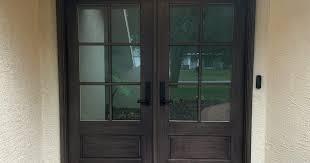Eye injuries in the workplace are not only common—they’re often preventable. One of the most effective ways to protect your eyes on the job is by wearing the correct safety glasses. However, not all industries face the same hazards, which means the ideal safety eyewear will differ depending on your field. This guide breaks down the most common types of safety glasses by industry. .
Safety Glasses for Construction and Industrial Jobs
If you work in construction, manufacturing, or a similar heavy-duty field, you face daily exposure to flying debris, dust, and sparks. For these environments, the top choice is impact-resistant safety glasses that meet the ANSI Z87.1 standard. These glasses are engineered to withstand high-velocity impacts and shield the eyes from injury.
Look for models with:
- Wraparound frames or side shields
- Anti-scratch and anti-fog lens coatings
- Durable polycarbonate lenses
Laboratory and Chemical Handling Environments
In labs or workplaces that involve handling hazardous chemicals, the risk is primarily chemical splashes and vapors. Here, sealed chemical-resistant safety glasses or goggles are critical. These protect against accidental spills, fumes, and corrosive substances.
Ideal features for lab safety glasses include:
- Indirect or no-vent designs to block liquids
- Wraparound or splash-resistant lenses
- Compatibility with face shields for added protection
Safety Glasses in Healthcare and Medical Research
Healthcare professionals and researchers deal with biohazards, bodily fluids, and airborne particles. In these settings, lightweight anti-fog safety glasses are common, offering a balance of protection and long-wear comfort.
Key benefits include:
- Crystal-clear lenses for high-precision work
- Fog resistance in high-humidity environments
- Lightweight, ergonomic frames for long shifts
Automotive, Welding, and Metalwork Safety Glasses
Jobs in automotive repair, welding, and metal fabrication come with serious hazards like UV radiation, sparks, and metal shavings. For these applications, tinted or shaded safety glasses or goggles are essential.
Safety glasses in this category often feature:
- UV or infrared filters
- Specialized welding lenses (e.g., shade 5, 9, or higher)
- Flame-resistant frames
Safety Glasses for Outdoor Work and Utilities
Those working in landscaping, utilities, electrical, or telecom fields often face prolonged exposure to UV rays, wind, and airborne particles. Polarized safety glasses or lenses with UV protection help reduce glare and shield your eyes from sun-related damage.
Recommended features include:
- ANSI-rated impact resistance
- Polarized or photochromic lenses
- Non-slip temples and ventilation for comfort
Choosing the Right Safety Glasses
Selecting the right safety glasses starts with understanding the specific eye hazards in your industry. Whether it’s impact protection on a construction site or chemical resistance in a lab, there’s a tailored option for every need.
For workers who wear corrective lenses, prescription safety glasses are the safest and most comfortable solution. These glasses offer clear vision while maintaining the same level of eye protection as standard industrial eyewear. Don’t compromise with ill-fitting gear. Invest in high-quality prescription safety glasses that combine OSHA/ANSI-rated protection with crystal-clear vision.




